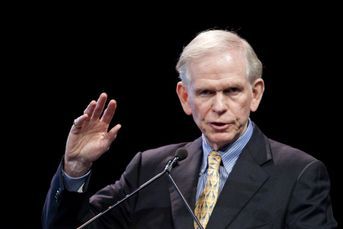Equity traders worried dark pools could dry up under new regs
Unintended consequences of capital markets regulation or legislation are the biggest fears harbored by equity traders at money management firms, a new report from consulting firm TABB Group says
Unintended consequences of capital markets regulation or legislation are the biggest fears harbored by equity traders at money management firms, a new report from consulting firm TABB Group says.
Buy-side traders are worried about “regulatory or legislative action that would impede liquidity or the ability of a large institutional investor to have a choice in how to execute large orders and manage the risks of information leakage and market impact,” said Laurie Berke, a principal at TABB Group and co-author of the firm’s annual report on institutional equity trading.
“The fear is that if you start taking certain things away, you must understand how that will impact liquidity and trading costs,” she said in an interview.
She said the major “hot-button” issue around regulation is related to so-called dark pools and the possible ramifications of restricting dark liquidity and money managers’ ability to remain anonymous.
The SEC last month proposed a series of regulations aimed at making the operation of dark pools — private electronic trading platforms — more transparent. But the agency’s proposals would, among other things, require that information about an investor’s interest in buying or selling a stock be made available publicly, instead of just to a select group operating within a dark pool, and that dark pools disclose their execution of trades.
“The concern with reference to dark pools is that reporting in real time — including the name of the venue — defeats the ultimate purpose of dark liquidity,” Ms. Berke said. “It poses the risk that high frequency (statistical arbitrage) or momentum players will take advantage of large institutional orders.”
Traders, who are increasingly transacting business globally, are also worried about how any new U.S. regulations or laws will mesh with trading rules in other countries.
“The message is that we need to be thoughtful,” Ms. Berke said, “and consider not just U.S. equity market structures but global implications” of new rules and regulations.
TABB surveyed 66 buy-side traders at U.S. institutional money managers running an aggregate $12.1 trillion in assets.
This story first appeared in Pensions & Investments, a sister publication of Investement News.
Learn more about reprints and licensing for this article.








